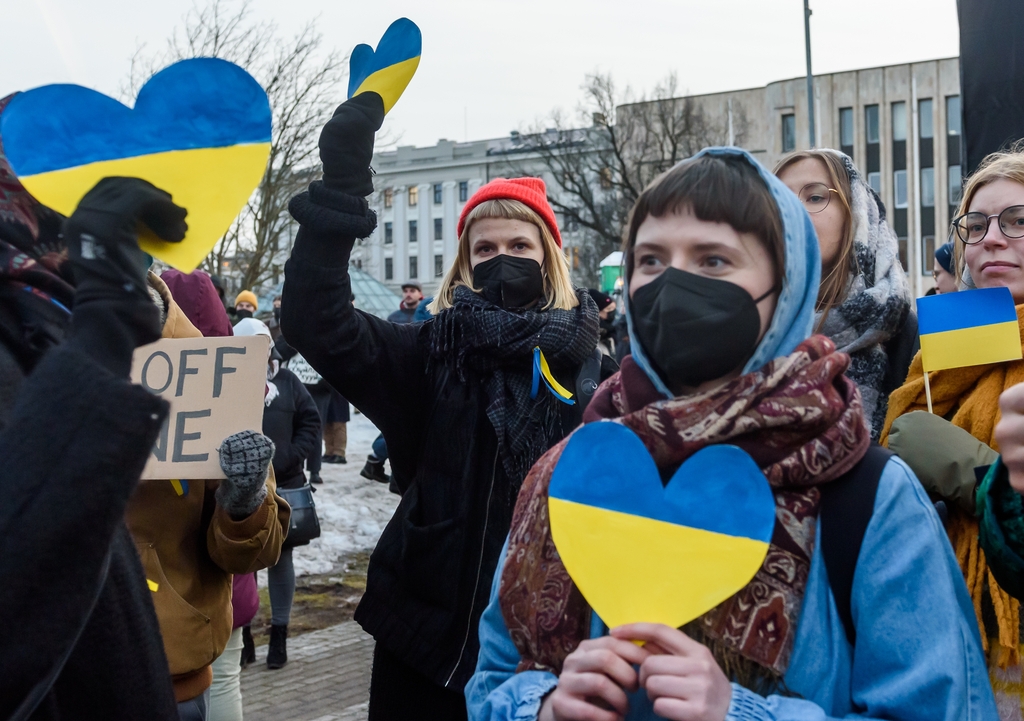Europe is at a crossroads, again
Putin has left his fan club of European right-wing populists squirming. United in embarrassment and politically sidelined.
Putin has left his fan club of European right-wing populists squirming. United in embarrassment and politically sidelined.

Parallels are currently drawn to historical events that shaped Europe (and the world) over the past century: the assassination of the Austrian Archduke Franz Ferdinand in 1914 (World War I), the appeasement of Adolf Hitler at Munich in 1938 (World War II), or the Cold War that ended in 1989.
The Russian invasion of Ukraine evokes many of the dangers and uncertainties of these times. As back then, Europe is at a crossroads. Politically and morally. And as back then, the ramifications will be dramatic.
It took President Vladimir Putin only three days to achieve what even the most optimistic commentators on European affairs would have thought impossible. Six developments stand out:
In France, Marine Le Pen, the leader of the right-wing National Rally and presidential candidate in the April 2022 election, has hastily destroyed 1.2 million campaign leaflets showing a photo of her shaking hands with Putin.
As welcome as many of these developments are, it is premature to hail them as evidence of fundamental shifts in European politics and security. Too much depends on how the tragic events in Ukraine eventually play out.
Every day the brave Ukrainian defenders withstand the Russian onslaught, the pressure for Putin to return to the negotiating table is rising.
Some commentators have suggested that the window for Russia to “solve” the Ukrainian crisis militarily closed on the 10th day of the invasion. Two weeks into the conflict, a quick end to the war appears increasingly unlikely.
However, it is difficult to see how the senseless bloodshed can be brought to a hold other than by diplomatic means. Further talks between Russian and Ukrainian officials are scheduled in coming days. As negotiations intensify, compromises will have to be made.
Finding a way out of the current quagmire will require listening carefully to what the Russians are saying. Their claims and grievances, as baseless as they may seem, will have to be taken seriously.
This is no easy feat. And it starts by looking at three key explanations Putin offered in the televised speech announcing his war of choice.
First, Russia is acting to stop “neo-Nazis and militias” from killing civilians and to prevent a “genocide” of Russians in Eastern Ukraine.
Second, Russia is protecting itself from some unspecified threat emanating from Ukraine (NATO in Ukraine?).
Third, Russia is defending and assisting the self-proclaimed breakaway states in the Donbass in Eastern Ukraine, the Donetsk and Luhansk People’s Republics.
In recent days, further signals have been sent by the Russian foreign ministry. For Foreign Minister Sergei Lavrov, the world would face a “real danger” if Kyiv acquired nuclear weapons.
His deputy, Alexander Grushko, declared that Russia is interested in NATO taking a position that “would protect our own national interests”. That interest includes the EU “distancing” itself from NATO.
So, what, then, would a potential compromise look like?
Russia withdraws all troops from Ukraine. Ukraine is excluded from any future NATO membership. A UN and OSCE peacekeeping mission is deployed, including in the Donbass where the status of Donetsk and Luhansk remains to be determined.
The 2014 annexation of Crimea is recognised as irreversible, even if unlawful. Ukraine (as well as Georgia and Moldova) are given pathways to joining the EU. The EU, in turn, agrees to gradually lift its sanctions.
This is, of course, an outcome that could have been achieved by employing creative diplomacy prior to the war. All sides are to blame that it wasn’t. And, as so often in the past, it is thousands of young soldiers, innocent civilians and displaced persons who are tragically paying the price.
Dr Christopher Michaelsen is an Associate Professor in the Faculty of Law & Justice at UNSW Sydney and an Associate of the Australian Human Rights Institute. He specialises in international law and global governance.